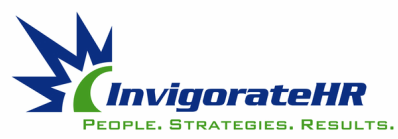 As we navigate the ever-evolving landscape of the modern workplace, one generation is making its presence increasingly felt: Generation Z. Born between 1997 and 2012, Gen Z is now entering the workforce in large numbers, bringing with them unique perspectives, values, and expectations. As HR professionals and business leaders, it's crucial that we understand and adapt to this new generation to create a workplace that engages, motivates, and retains this vital talent pool. Why Focus on Generation Z? Gen Z represents more than just the future of our workforce; they embody a shift in workplace dynamics that we cannot ignore. Having grown up in a world of rapid technological advancement, social media ubiquity, and increasing globalization, Gen Z brings fresh perspectives and innovative ideas to the table. They're digital natives, entrepreneurial spirits, and socially conscious individuals who desire to make a real impact through their work. Understanding Gen Z is not just about catering to a new demographic; it's about bridging generational gaps in our multi-generational workplaces and fostering effective collaboration across age groups. Failing to engage Gen Z could lead to high turnover rates and difficulty in attracting top talent from this generation. Unique Traits and Values of Gen Z
To effectively engage Gen Z, we must first understand what makes them tick. Some key characteristics include:
Navigating Post-Pandemic Anxiety It's important to recognize that Gen Z faced unique challenges during the COVID-19 pandemic, including disrupted education, social isolation, and increased mental health concerns. As they transition into the workforce, they may experience heightened anxiety about in-person interactions, job security, and their preparedness for professional life. Employers can support Gen Z workers by:
Attracting Gen Z Talent To attract Gen Z candidates, organizations should highlight company values aligned with Gen Z priorities, such as mental wellbeing and social responsibility. Leveraging social media and digital platforms for recruitment is crucial, as is emphasizing growth opportunities and potential for impact. Showcasing flexibility and work-life integration options can also be a strong draw for this generation. Motivation for Gen Z often comes from meaningful work aligned with their values, opportunities for growth and work-life integration, and an equitable, diverse, and socially responsible workplace. Engagement strategies might include fostering social connections and teamwork, providing frequent developmental feedback, empowering them with modern tools and technologies, and being transparent about the organization's broader impact. To keep Gen Z workers engaged and committed, organizations should focus on providing frequent feedback and meaningful recognition. Prioritizing work-life integration and wellbeing is crucial, as is fostering a sense of community and belonging. Empowering them to create impact, offering clear career advancement paths, and leveraging cutting-edge technologies can also contribute to improved retention rates. Creating a truly Gen Z-friendly culture involves prioritizing Diversity, Equity, Inclusion, and Belonging (DEIB) initiatives. Organizations should emphasize purpose over profits, create collaborative workspaces, embrace social and environmental responsibility, and encourage continuous learning and development. By acknowledging the unique challenges and perspectives of Generation Z and offering appropriate support, employers can facilitate a smoother transition into the workforce and foster a thriving, multi-generational team. As we adapt to the needs and expectations of Gen Z, we're not just preparing for the future of work – we're creating it. This approach will not only benefit Gen Z employees but will also contribute to a more dynamic, innovative, and inclusive workplace for all generations. Contact us today to learn more about strategies for embracing generational diversity. Comments are closed.
|
Archives
December 2024
|

 RSS Feed
RSS Feed